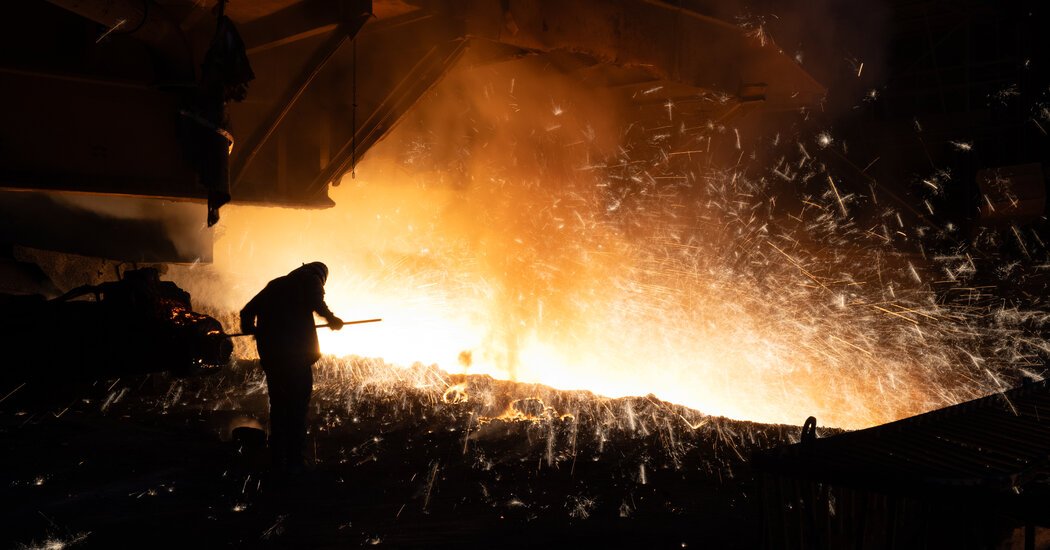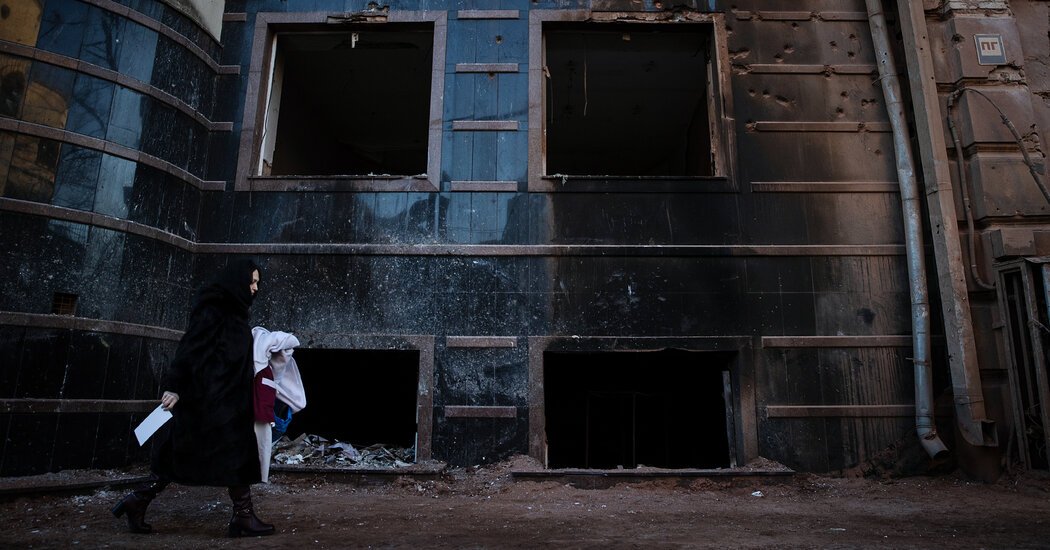Tata Steel said Friday that it planned to shut down the blast furnaces at Britain’s largest steel mill, in Port Talbot, Wales, and replace them with an electric furnace — a move that would cut carbon emissions but could cost 2,800 jobs.
The company, part of the India-based Tata conglomerate, says the steel mill, much of which dates back to the 1950s, has frequently lost money.
“The course we are putting forward is difficult, but we believe it is the right one,” the company’s chief executive, T.V. Narendran, said in a statement. “We must transform at pace to build a sustainable business in the U.K. for the long term.” He said Tata had invested almost 5 billion pounds (about $6 billion) in the British business since 2007, when Tata bought the mill.
Last year, the British government offered £500 million in support of Tata’s plan, which has an estimated price tag of up to £1.25 billion.
Although the announcement was not a surprise, unions representing workers at the plant said they were angry that their proposals to save jobs had been rejected. The plant employs around 4,000 people, and it was unclear how many of the job cuts would take place at Port Talbot; Tata employs around 8,000 people in Britain.
“It is an absolute disgrace that Tata Steel, and the U.K. government, appear intent on pursuing the cheapest instead of the best plan for our industry, our steelworkers and our country,” two unions, Community and GMB, said in a statement.
Tata wants to replace much of the current operation, which uses coal to extract iron from ore, with an electric furnace that makes steel by melting scrap metal in a blaze of sparks. Electric steel making, which is more common in the United States than in Europe, tends to employ fewer workers.
The government says the shift would ensure that steel making continued at the site and would cut Britain’s overall greenhouse gas emissions by 1.5 percent.
The unions expressed skepticism that an electric furnace would be capable of producing metal of sufficient quality for some demanding applications, including automobile body panels and food and beverage cans.
But what is largely at issue is the timing of the move. In November, the unions, with the aid of Syndex, a consulting firm, made a counterproposal to Tata that involved keeping one of the two blast furnaces open until 2032. They also proposed that Tata build a smaller electric furnace than planned and as well as a device called a Direct Reduction Plant, which produces raw iron through a cleaner process than a blast furnace. That iron could have been used to make higher quality metal.
The unions said that this plan would have avoided compulsory layoffs.
Tata, however, has decided to move ahead more quickly, to the disappointment of employees.
The company said it would close one blast furnace around the middle of this year and much of the rest of the plant by the end of the year. Tata also said it would embark on a “wider restructuring of other locations.”
Tata said it would supply its British network with semi-finished steel from plants in India and the Netherlands until the new furnace was in place.
“We all understand that we have to get to a green industry, but this can’t be done in a matter of months” said Barrie Evans, an employee at the steelworks and an official in the Community union. “This is just off a cliff edge.”





